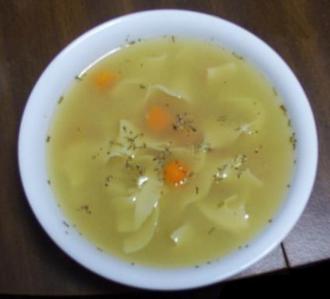Reposted by poplular request:
March 16, 2016 - Now that Chodesh Adar II has arrived, we are fully into the month(s) of simchah, and are all awaiting Purim. Many people in my neighborhood have been discussing the goings on during Purim.
Yes, there is an obligation on Purim to drink wine, even more than one regularly does. But just as fasting on Yom Kippur must be done in a way that doesn’t endanger your health, similarly the Purim drinking must be fulfilled sensibly, with the correct amounts.
People drink alcohol, and many become quite inebriated. This, in turn, leads to less than desirable behaviors, and rarely a year goes by that someone doesn’t get hurt — or worse. I know doctors who have worked emergency room shifts over Purim, and they tell me that it isn’t a pretty sight. The admittance of people into the emergency room is nonstop, and the people coming in are injured from falls or have trauma inflicted by other means. Sometimes, people have had so much to drink, they lose consciousness and must be monitored. Unfortunately, there have been tragedies on Purim both in Israel and abroad.
More than 25 years ago, my community organized what was the first Hatzalah in Israel. I was approached to join this organization and served in it for almost seven years. During that time, I saw it all. Resuscitations and births and everything in between. But perhaps my most memorable call from those days was at 8:45 a.m. one morning.
I had left the neighborhood but wasn’t far away when I heard on my radio that a girl at a local seminary wasn’t breathing. My first thoughts were that given the age of this person, perhaps her roommates were mistaken. Maybe it was just a seizure? Unfortunately, when I arrived, this young lady was indeed not breathing, and had no pulse. I joined the efforts to resuscitate her. Advanced life support was summoned and arrived quickly. Just as they got to the scene, we were able to acquire a pulse, but we continued to assist her breathing. The girl was never to breath on her own again, and several weeks later, she passed away.
This was neither my first or last attempt at CPR, but it was the only time that I performed CPR because of the overconsumption of alcohol. Yes — this girl had been out the night before and had consumed more than half a bottle of whisky. She came back to her room that night and fell asleep. Her roommates checked on her before they went to eat breakfast the next morning. Although in a deep sleep, she seemed okay. But while they were eating breakfast, their roommate vomited. In a normal situation, when you are sick and vomit, you wake up and turn over to your side. But when you are drunk, you don’t wake up and you can aspirate vomit into your lungs. That’s what happened in this case, and it had a tragic ending.
Alcohol is potentially deadly. We aren’t talking about a l’chaim after a piece of gefilte fish on Shabbos or celebrating an engagement or a bar mitzvah. Not only isn’t that harmful, it might even have a small health benefit. According to the Mayo Clinic, moderate alcohol consumption may provide some health benefits. It may:
- Reduce your risk of developing heart disease
- Reduce your risk of dying of a heart attack
- Possibly reduce your risk of strokes, particularly ischemic strokes
- Lower your risk of gallstones
Even so, say the people at Mayo, the evidence for the possible health benefits of alcohol isn’t certain, and alcohol may not benefit everyone who drinks. Moderate alcohol use may be beneficial only if you’re an older adult or if you have existing risk factors for heart disease, such as high cholesterol. If you’re a middle-aged or younger adult, some evidence shows that even moderate alcohol use may cause more harm than good. In fact, if you’re a woman and drink alcohol, talk to your doctor about taking supplemental folate to help reduce the risk of cancers associated with alcohol use. You can take other steps to benefit your cardiovascular health besides drinking — eating a healthy diet and exercising, for example, will reduce your risk of diabetes.
Unfortunately, drinking on Purim sometimes is far from moderate. And Purim can also be more than just one day of drinking; it can be the beginning of a very bad and dangerous habit. If you feel good from a little drinking, maybe a little more drinking can make the feeling even better. And then you always want more. And when you have more and you have it more often, trouble most certainly lies ahead. Don’t drink alcohol if:
- You take medications that can interact with alcohol
- You’ve had a previous hemorrhagic stroke
- You’ve been diagnosed with alcoholism or alcohol abuse
- You have liver or pancreatic disease
- You have heart failure or you’ve been told you have a weak heart or dilated cardiomyopathy
- You’re planning to drive a vehicle or operate machinery
There is no question, especially as Purim is upon us, that we have to be very careful about our drinking. This is something that when it goes beyond the limits, can end tragically. There is always the danger of an accident, but just as dangerous is the possibility of alcohol addiction, which can lead to cirrhosis of the liver and cancer. Ultimately, the person would need a liver transplant to survive. The complications also include:
- Ascites (fluid buildup in the abdomen)
- Variceal hemorrhage (bleeding in the upper stomach and esophagus from ruptured blood vessels)
- Spontaneous bacterial peritonitis, a form of peritonitis (inflammation of the membrane that lines the abdomen) that is associated with ascites. Other bacterial infections are also a common complication of cirrhosis.
- Hepatic encephalopathy (damage to the brain). Impaired brain function occurs when the liver cannot detoxify harmful substances, and can lead to coma.
- Anemia
- Cardiovascular disease (This is a good example of how a small amount of something can be beneficial but too much of a good thing can be very detrimental.)
A few weeks ago, a few boys were “shalom zachor hopping”. One of them found some very good single malt scotches and over consumed. He went to sleep Friday night, but like the girl we spoke about at the beginning of this article, he vomited, aspirated and never woke up. Another very unfortunate tragedy that could have — and should have! — been avoided. We have enough problems that we may not have a lot of control over; this is something we must have control over.
Let’s work together to make this Purim the festive, happy day that it is supposed to be. Have some special wine with your delicious meal. Enjoy the day! Do not drink too much, and certainly do not drive once you have consumed alcohol. And let’s give our emergency services like Hatzalah and the doctors working in the emergency rooms a break this year so they can enjoy Purim as well.
Keeping alcohol consumption to a minimum will “add hours to your days, days to your years, and years to your life.”
Alan Freishtat is an A.C.E. CERTIFIED PERSONAL TRAINER and a BEHAVIORAL CHANGE and WELLNESS COACH with over 19 years of professional experience. Alan is the creator and director of the “10 Weeks to Health” program for weight loss. He is available for private coaching sessions, consultations, assessments and personalized workout programs both in his office and by telephone and skype. Alan also lectures and gives seminars and workshops. He can be reached at 02-651-8502 or 050-555-7175, or by email at alan@alanfitness.com Check out the his web site – www.alanfitness.com US Line: 516-568-5027















